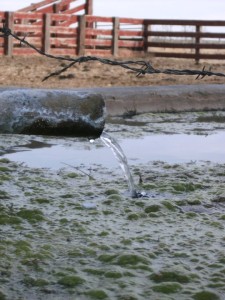**This article is not a substitute for the advice of an attorney.**
Today we have Part II of our discussion of Groundwater Conservation Districts in Texas. In case you missed Part I, click here.

What can GCDs do?
GCDs are granted broad power by the Texas Legislature to accomplish their purposes. GCDs develop both plans and rules and have eminent domain power.
Plans
All GCDs develop a groundwater management plan that outlines the GCD’s goals to provide the most efficient use of groundwater, controlling and preventing groundwater waste, controlling and preventing subsidence, addressing conjunctive surface water management issues, addressing natural resource issues, drought conditions, conservation, recharge, and desired future aquifer conditions. See Texas Admin. Code Section 356.52. These plans are submitted by each GCD to the Texas Water Development Board for approval. See Texas Water Code Section 36.1072. These management plans are updated at least every 5 years.
Additionally, GCDs must also participate in joint planning groups (GMAs), which are comprised of all GCDs in a particular geographic area. These joint planning groups develop a “desired future condition” plan for each aquifer in its area and submit that plan to the Texas Water Development Board. Once approved by the Texas Water Development Board, districts must adopt rules consistent with the management plan and may issue permits only up to the point where the desired future condition may be met for the area. See Texas Water Code Section 36.1071; 36.108.
Rules
GCDs are given the power to enact a variety of rules, which will be discussed in detail below. In adopting such rules, a GCD must consider several factors including all groundwater needs and uses in the district to ensure fair and impartial rules, the private right of groundwater ownership, the public interest in conservation, and the goals of the GCD’s management plan. See Texas Water Code Section 36.101.
By law, a GCD generally must require a permit for the drilling, equipping, operating, or completing of wells, or for substantially altering the size of existing wells or pumps. See Texas Water Code 36.113. GCDs each develop their own rules related to when permits are necessary, what information must be included in a permit, and whether a permit will be subject to a hearing. When a permit is filed, a GCD must determine whether the permit should be granted and makes that decision based on whether the proposed usage unreasonably affects existing groundwater and surface water resources or existing permit holders, whether the water will be put to beneficial use, whether the applicant has agreed to avoid waste and practice conservation, and whether a proposed use is consistent with the district’s management plan. See Texas Water Code Section 36.113.
Certain types of wells are statutorily exempt from the permitting process, and GCDs may not require that a permit be obtained. These include wells for domestic use, providing water to livestock or poultry located on a tract larger than 10 acres and if such well is incapable of producing more than 25,000 gallons a day; a well drilled solely to supply water for a rig that is actively engaged in drilling or exploration operations for an oil or gas well, and water used in the permitted production of mining pursuant to the Natural Resources Code. See Texas Water Code 36.117. Although no permit is required for such wells, it is required that wells be registered, and drilling rules are applicable.
GCDs may require that records and reports be kept of the drilling of wells and the production and use of groundwater, see Texas Water Code Section 36.111, must require that drillers’ logs be kept of water wells and that the logs are filed with the GCD, see Texas Water Code Section 36.112, and may regulate spacing of wells and production of groundwater, see Texas Water Code Section 36.116.
Finally, GCDs are given the power to pass emergency rules without notice of hearing if the board finds that there is substantial likelihood of immediate peril to the public health, safety, or welfare, or a state or federal law requires adoption of a rule on less than 20 days notice, and the board prepares a written statement of these circumstances. Any such emergency rule is effective for no longer than 90 days, unless notice of hearing on the final rule is given within that 90 day period, in which case, the rule is effective for an additional 90 days. See Texas Water Code Section 36.1011.
Eminent Domain
A GCD has eminent domain power to acquire property within district bounds if necessary for conservation purposes. This power does not, however, allow the GCD to condemn land for the purpose of obtaining water rights or in order to produce, sell, or distribute water. See Texas Water Code Section 36.105.
How can GCDs control groundwater pumping when groundwater is the private property of a landowner?
Although Texas does recognizes that a landowner owns the groundwater below the surface of his land, this ownership does not entitle the landowner the right to capture any certain amount of groundwater from below the surface of his or her land. See Texas Water Code Section 36.002. Thus, GCDs are allowed to impose reasonable limitations upon the production of groundwater and may do so by setting spacing and tract size requirements, regulating production, and allocating a given share of water in an aquifer to a landowner on a proportionate basis. See Texas Water Code Section 36.002. A recent decision from the San Antonio Court of Appeal in Bragg v. Edwards Aquifer Authority, makes clear that if a GCD’s regulations go too far, however, a landowner may recover just compensation for the taking of his private property. [Read blog discussing Bragg case here.]












